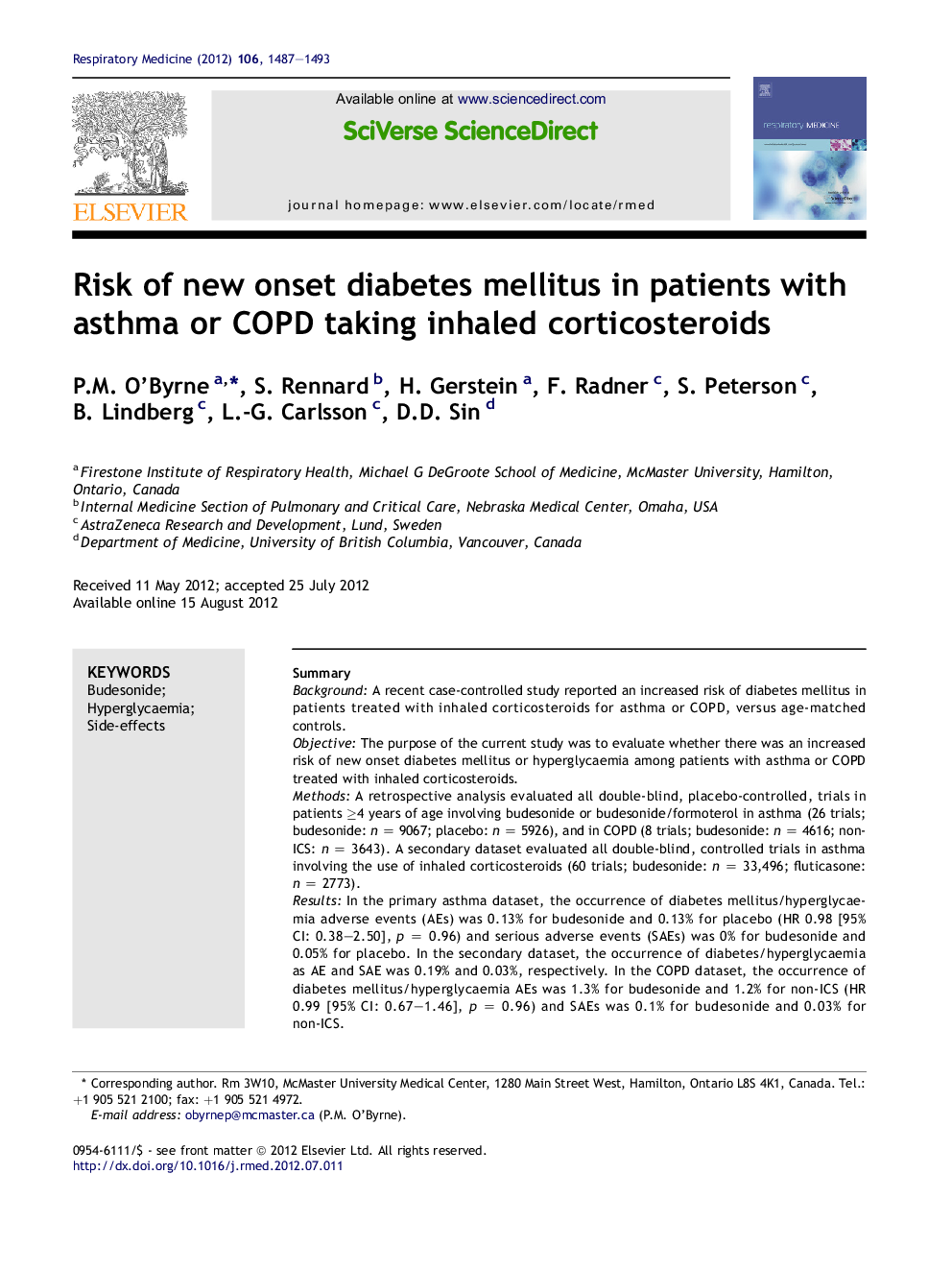| Article ID | Journal | Published Year | Pages | File Type |
|---|---|---|---|---|
| 4210377 | Respiratory Medicine | 2012 | 7 Pages |
SummaryBackgroundA recent case-controlled study reported an increased risk of diabetes mellitus in patients treated with inhaled corticosteroids for asthma or COPD, versus age-matched controls.ObjectiveThe purpose of the current study was to evaluate whether there was an increased risk of new onset diabetes mellitus or hyperglycaemia among patients with asthma or COPD treated with inhaled corticosteroids.MethodsA retrospective analysis evaluated all double-blind, placebo-controlled, trials in patients ≥4 years of age involving budesonide or budesonide/formoterol in asthma (26 trials; budesonide: n = 9067; placebo: n = 5926), and in COPD (8 trials; budesonide: n = 4616; non-ICS: n = 3643). A secondary dataset evaluated all double-blind, controlled trials in asthma involving the use of inhaled corticosteroids (60 trials; budesonide: n = 33,496; fluticasone: n = 2773).ResultsIn the primary asthma dataset, the occurrence of diabetes mellitus/hyperglycaemia adverse events (AEs) was 0.13% for budesonide and 0.13% for placebo (HR 0.98 [95% CI: 0.38–2.50], p = 0.96) and serious adverse events (SAEs) was 0% for budesonide and 0.05% for placebo. In the secondary dataset, the occurrence of diabetes/hyperglycaemia as AE and SAE was 0.19% and 0.03%, respectively. In the COPD dataset, the occurrence of diabetes mellitus/hyperglycaemia AEs was 1.3% for budesonide and 1.2% for non-ICS (HR 0.99 [95% CI: 0.67–1.46], p = 0.96) and SAEs was 0.1% for budesonide and 0.03% for non-ICS.Conclusion and clinical relevanceTreatment with inhaled corticosteroids in patients with asthma or COPD was not associated with increased risk of new onset diabetes mellitus or hyperglycaemia.
